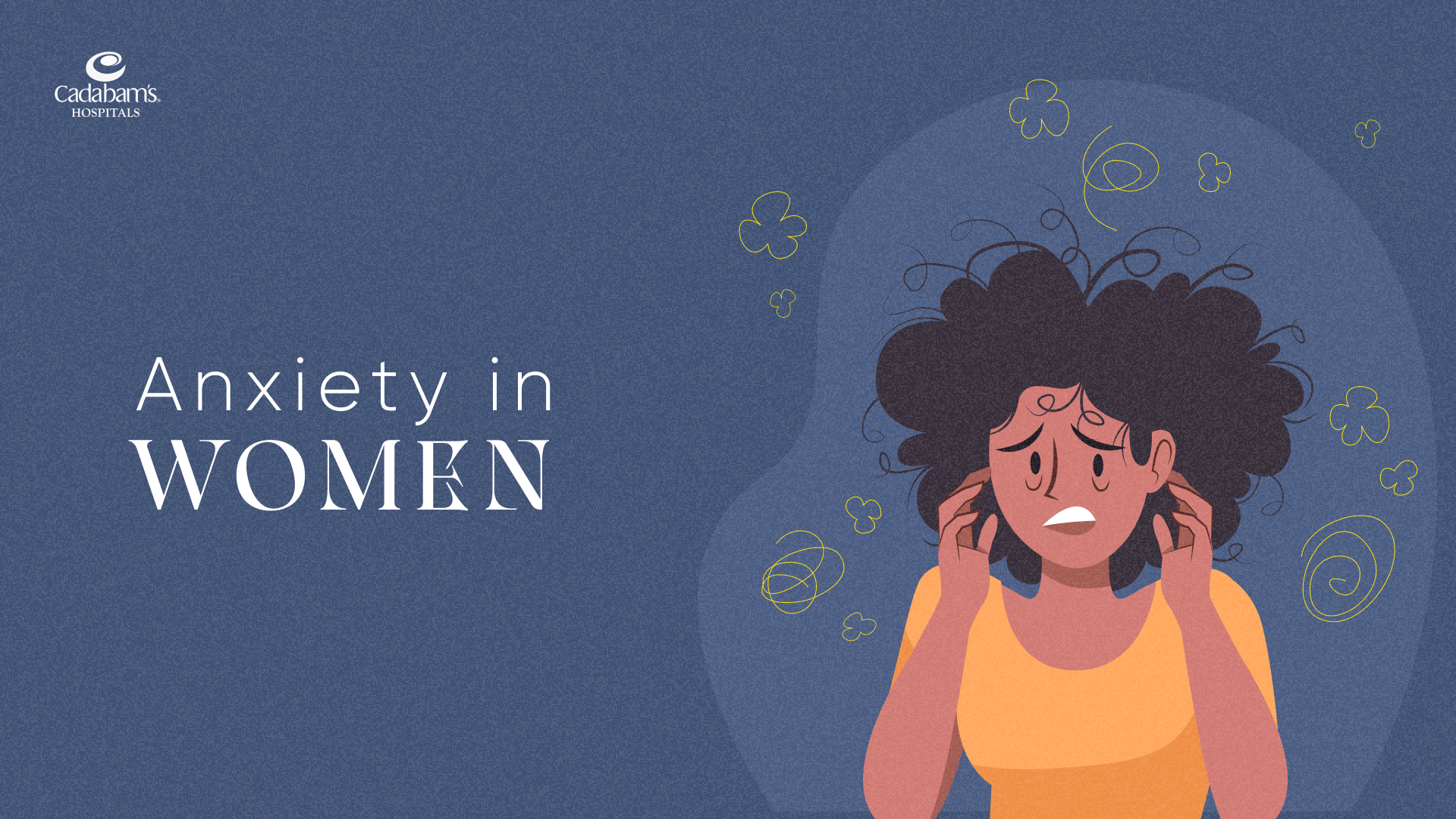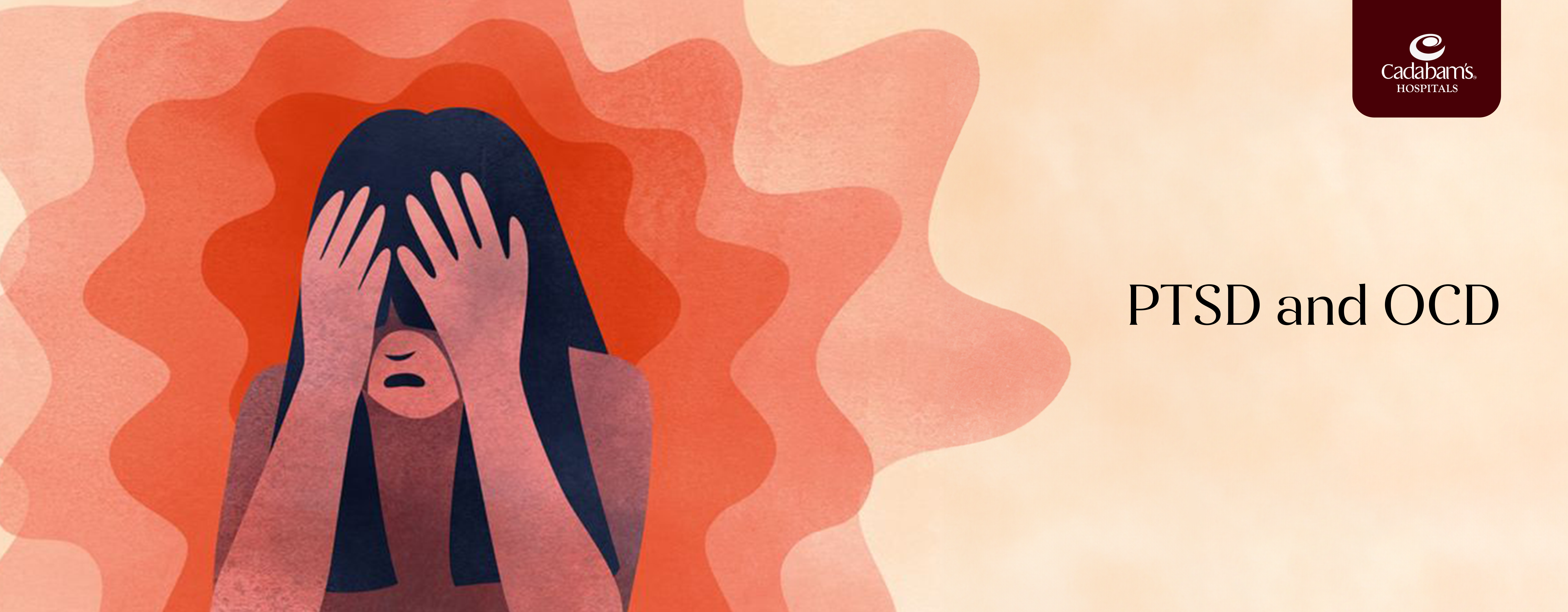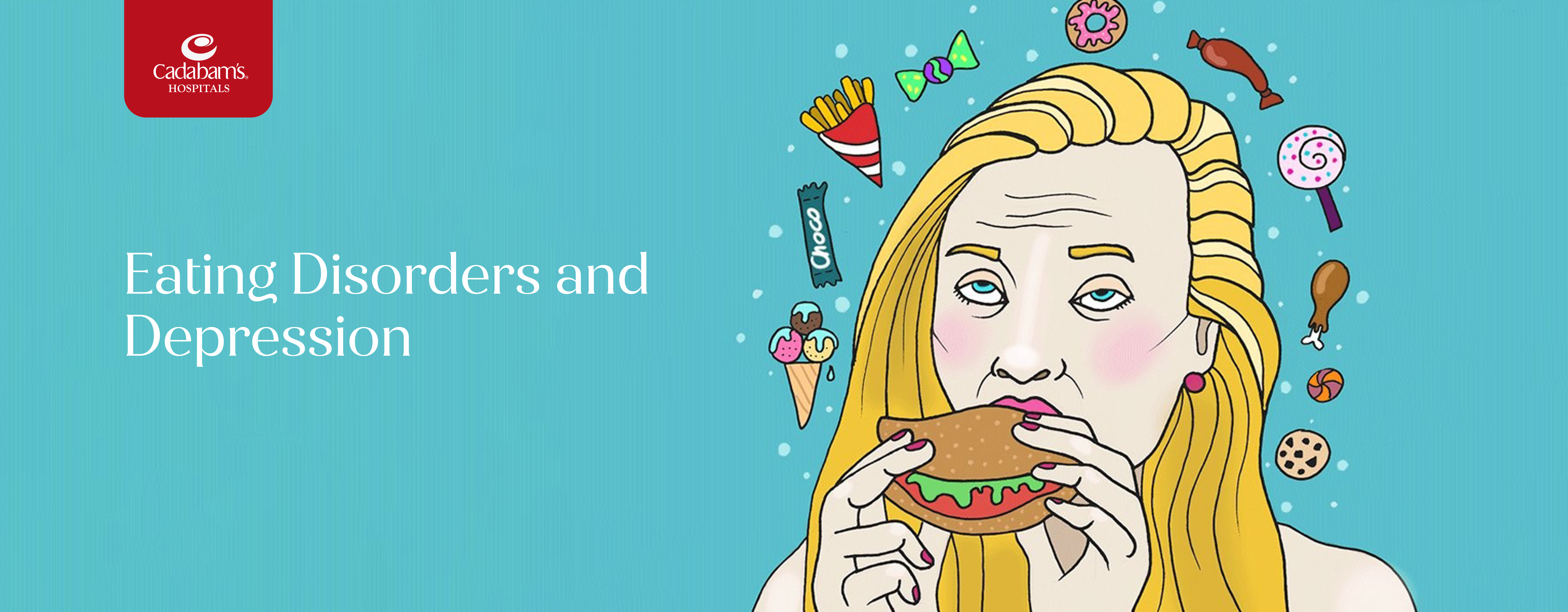Table of Content
Anxiety is something that we all face from time to time, but it has been found to be more predominant amongst women. Let’s look at this in detail.
Introduction
A racing heart, clammy palms, scattered thoughts, and an overwhelming sense of unease – these are the telltale signs of anxiety. For an estimated 264 million individuals globally, anxiety disorders cast a long shadow over their lives.
Anxiety, as defined by the American Psychological Association (APA), is a complex emotional state marked by tension, relentless worry, and accompanying physical alterations. In the contemporary landscape, women, in particular, find themselves wrestling with these symptoms of anxiety all too frequently.
In this blog, we delve into the intricacies of anxiety in women, shedding light on its unique facets and exploring strategies to cope with and conquer this prevalent issue. Join us as we embark on a journey to understand and address anxiety in the lives of women today.
Understanding Anxiety Disorders
We've all felt that familiar butterflies or restlessness before a nerve-wracking presentation or a visit to the dentist. These mild jitters are part of the body's evolutionary response, a connection to the fight-or-flight mechanism.
Anxiety triggers the release of adrenaline and other hormones, boosting our energy and optimizing our systems to prioritize lung and heart functions.
This natural chain reaction serves a purpose in moderation but can become overwhelming in individuals with generalized anxiety disorder (GAD).
According to Dianne Chambless, PhD, a psychology professor at the University of Pennsylvania, anxiety itself isn't problematic. It's when it escalates to a severe degree, impinging on one's quality of life, work, relationships, and overall well-being, that it transforms into a disorder.
Navigating Gender Differences in Anxiety: A Closer Look at Women's Experiences
Anxiety is a common mental health challenge, impacting individuals of all genders. However, women often face distinctive life experiences that can trigger or exacerbate anxiety. Hormonal fluctuations during puberty, pregnancy, and menopause make women more vulnerable to anxiety during these phases, with perinatal anxiety occurring during pregnancy and the postpartum period.
Several types of anxiety are particularly unique to women:
- Puberty Anxiety: As young women undergo significant hormonal changes during puberty, they become more susceptible to anxiety. While boys and girls typically experience similar anxiety rates before puberty, adolescent girls are more likely than boys to develop anxiety once puberty hits.
- Premenstrual Dysphoric Disorder (PMDD): PMDD manifests as depressive mood and anxiety in the week leading up to menstruation. It can include symptoms like fatigue, concentration difficulties, sleep disturbances, physical discomfort, and joint pain.
- Prenatal Anxiety: Approximately 6% of women experience anxiety during pregnancy, marked by hormonal shifts and the stress of impending motherhood.
- Postpartum Anxiety: Around 10% of postpartum women grapple with anxiety in the first year after childbirth, sometimes alongside depression.
- Menopausal Anxiety: Menopause, like puberty, involves significant hormonal changes and can predispose women to anxiety, particularly those experiencing symptoms like hot flashes and insomnia. Hormone therapy may offer relief in some cases.
Why is Anxiety Common in Women?
Women are more than twice as likely as men to experience anxiety in their lifetimes. They are also prone to comorbidities, experiencing both anxiety and depression concurrently.
Women are particularly susceptible to disorders like generalized anxiety disorder, panic disorder, specific phobias, and post-traumatic stress disorder (PTSD).
Hormones are believed to play a pivotal role in these gender disparities. Estrogen fluctuations during various life stages, along with consistently lower testosterone levels in women, contribute to this susceptibility.
Additionally, stress, often linked to traumatic experiences, disproportionately affects women, making them more vulnerable to anxiety disorders, particularly PTSD. Addressing these unique challenges is crucial in providing effective support and treatment for women facing anxiety
What Causes Anxiety in Women?
Anxiety is a complex condition, with causes that apply to both genders and factors that can heighten vulnerability to its grasp. These encompass:
- Abuse and Neglect: Experiencing abuse or neglect, especially during childhood, can foster anxiety later in life.
- Family History: A family history of anxiety or a close relative grappling with anxiety can increase the likelihood of developing anxiety.
- Personal History: A personal history of anxiety or other mental health concerns can heighten susceptibility.
- Physical Health Conditions: Coping with a severe physical ailment like cancer can be emotionally taxing and trigger anxiety.
- Stressful Life Events: Traumatic occurrences such as the loss of a loved one, job loss, or divorce can provoke anxiety.
Nevertheless, there are certain triggers that are unique to women.
Hormonal Factors and Anxiety
Throughout their lives, women experience hormonal variations tied to different life stages—puberty, menstruation, pregnancy, childbirth, and menopause. These fluctuations are believed to contribute to anxiety during these periods.
- Puberty: Pubescent girls undergo not only physical changes but also face challenges such as peer pressure, social media concerns, and academic stress. Coupled with significant hormonal shifts, these factors can foster anxiety.
- Menstruation: Monthly menstrual cycles subject women to hormonal ups and downs, impacting mood and causing irritability. Premenstrual Syndrome (PMS) and Premenstrual Dysphoric Disorder (PMDD) can exacerbate anxiety symptoms.
- Pregnancy and Childbirth: Hormonal changes during pregnancy and postpartum, known as the 'perinatal period,' can trigger perinatal anxiety. Concerns may revolve around childbirth, baby preparation, or dealing with conditions like hyperemesis gravidarum (HG). Postpartum anxiety can persist in the year following childbirth.
Social and Cultural Influences
Women naturally produce more stress hormones than men, making them susceptible to anxiety in response to stressful situations like divorce or bereavement. Along with that the contemporary woman often juggles numerous responsibilities, from full-time work to household management and childcare. These multiple demands can overwhelm and contribute to anxiety and depression.
Life Transitions and Anxiety
Transitioning through life changes prompts a natural resistance to the unfamiliar, as revealed by a 2012 literature review. Nicole Sbordone, a licensed clinical social worker in Scottsdale, Arizona, explains that as creatures of habit, we find solace in routine. When this stability is disrupted by uncertainty, anxiety can take hold. The brain craves familiarity, and moments of transition often bring discomfort, fueling anxious feelings. Embracing change means adapting to a new way of life, acknowledging the innate resistance, and working towards finding balance amidst the uncertainty.
Common Anxiety Symptoms in Women
Anxiety disorders are genuine medical conditions that, like physical ailments such as asthma and hypertension, respond well to treatment. Understanding that anxiety disorders are treatable is vital, as these conditions can significantly impact daily life quality. Given that anxiety affects more women than men, recognizing its symptoms in women is crucial.
Symptoms of anxiety disorders can vary from one individual to another, but often include:
- Digestive Distress: Ongoing nausea, reduced appetite, and abdominal pain may occur.
- Increased Heart Rate: Heart rate elevation, particularly in stressful situations.
- Fatigue: Feelings of tiredness, lethargy, or weakness.
- Concentration Challenges: Difficulty focusing and maintaining attention.
- Dread and Panic: A sense of impending danger or doom.
- Irritability: Nervousness and edginess.
- Sleep Disturbances: Insomnia and other sleep-related issues.
- Physical Symptoms: Trouble with rapid breathing, sweating, and trembling.
While these are indicative of anxiety in women, it's important to note that they can also overlap with symptoms of substance use disorders. Anxiety is a normal response to stress or danger, but when these responses disrupt daily life without a genuine threat, an anxiety disorder evaluation is warranted. If you or a loved one exhibits these symptoms and relies on substances like alcohol to alleviate them, seeking evaluation at a treatment center capable of addressing both co-occurring disorders is essential, such as Caron.
Impact on Mental and Physical Health
- The intricate relationship between mental and physical health cannot be overstated. Positive psychological well-being can serve as a safeguard against heart attacks and strokes, according to a study. Conversely, poor mental health can lead to detrimental physical health and risky behaviors.
- Chronic diseases are often intertwined with mental health conditions. Depression, for example, has been linked to diabetes, asthma, cancer, cardiovascular disease, and arthritis. Similarly, schizophrenia is associated with a higher risk of heart and respiratory diseases. Moreover, mental health issues can complicate the management of chronic illnesses, resulting in a higher mortality rate among those with concurrent depression or other mental health conditions.
- Sleep problems are a common companion to mental health conditions. Conditions like insomnia and sleep apnea affect a significantly higher percentage of individuals with mental health issues compared to the general population. Sleep disturbances may exacerbate existing mental health conditions while being exacerbated by them, creating a challenging cycle.
- Smoking is more prevalent among those with mental health conditions, with an increased likelihood of heavier smoking. This can be attributed to the lower dopamine levels in individuals with depression, as nicotine in cigarettes temporarily boosts dopamine production, offering momentary relief. However, this can lead to a recurring need to smoke and potential addiction.
- Access to healthcare is often compromised for individuals with mental health conditions, making it more challenging to manage their physical well-being. Seeking care, adhering to prescriptions, and maintaining a healthy lifestyle can be difficult when grappling with a mental health condition.
- Furthermore, physical health conditions can give rise to mental health challenges. Conditions like psoriasis, cancer, or heart attacks can trigger feelings of depression or anxiety, affecting approximately one-third of individuals with serious medical conditions. Emotional and psychological distress often stems from the stress, stigma, and rejection associated with these conditions, underscoring the intricate interplay between mental and physical health.
Coping Strategies for Women
- Coping strategies for women encompass a diverse range of techniques to navigate life's challenges effectively.
- Building a robust support network of friends and family can provide a valuable emotional safety net.
- Engaging in regular exercise not only promotes physical well-being but also helps manage stress and anxiety.
- Practicing mindfulness and relaxation techniques, such as meditation or yoga, can aid in reducing daily tension.
- Setting clear boundaries in personal and professional life helps in maintaining a healthy work-life balance.
- Additionally, seeking professional help through therapy or counseling can provide invaluable tools for managing anxiety, depression, or other mental health concerns, offering women the support they need to thrive.
Seeking Professional Support
Seeking professional support is a crucial step in managing mental health effectively. When faced with overwhelming anxiety, depression, or other mental health challenges, consulting a mental health professional offers expert guidance and treatment options. Psychologists, psychiatrists, therapists, and counselors are trained to provide personalized strategies for coping and healing.
They can diagnose specific conditions, recommend therapy or medication when necessary, and offer a safe and confidential space for individuals to express their thoughts and feelings. Seeking professional help is a proactive and empowering choice that can lead to improved mental well-being and a better quality of life. Remember, there is no shame in seeking the support you deserve.
Frequently Asked Questions
What are the common symptoms of anxiety in women, and how do they differ from men?
Common anxiety symptoms in women include excessive worry, physical tension, and social anxiety. Men may display more irritability and anger.
Are there any lifestyle factors that can contribute to anxiety in women, such as diet, exercise, or sleep patterns?
Yes, lifestyle factors like poor diet, lack of exercise, and disrupted sleep patterns can contribute to anxiety in women.
Are women more prone to certain types of anxiety disorders compared to men?
Yes, women are more prone to certain anxiety disorders, such as generalized anxiety disorder and panic disorder, compared to men.
What are the available treatment options for anxiety in women, and how effective are they?
Treatment options include therapy, medication, and lifestyle changes. Effectiveness varies, but therapy and medications like SSRIs can be highly effective.
How can family members and loved ones support women dealing with anxiety in their daily lives?
Offer emotional support, listen without judgment, encourage professional help, assist in seeking therapy or medication, promote self-care, and maintain open communication.
What are the signs of anxiety in a woman?
Signs of anxiety in women can include excessive worry, restlessness, fatigue, muscle tension, sleep disturbances, irritability, and difficulty concentrating.
How Cadabam's Help you for Addiction?
- 410+ Professional Consultants
- 1,00,00+ Happy Faces
- 120+ Currently Seeking Treatments











